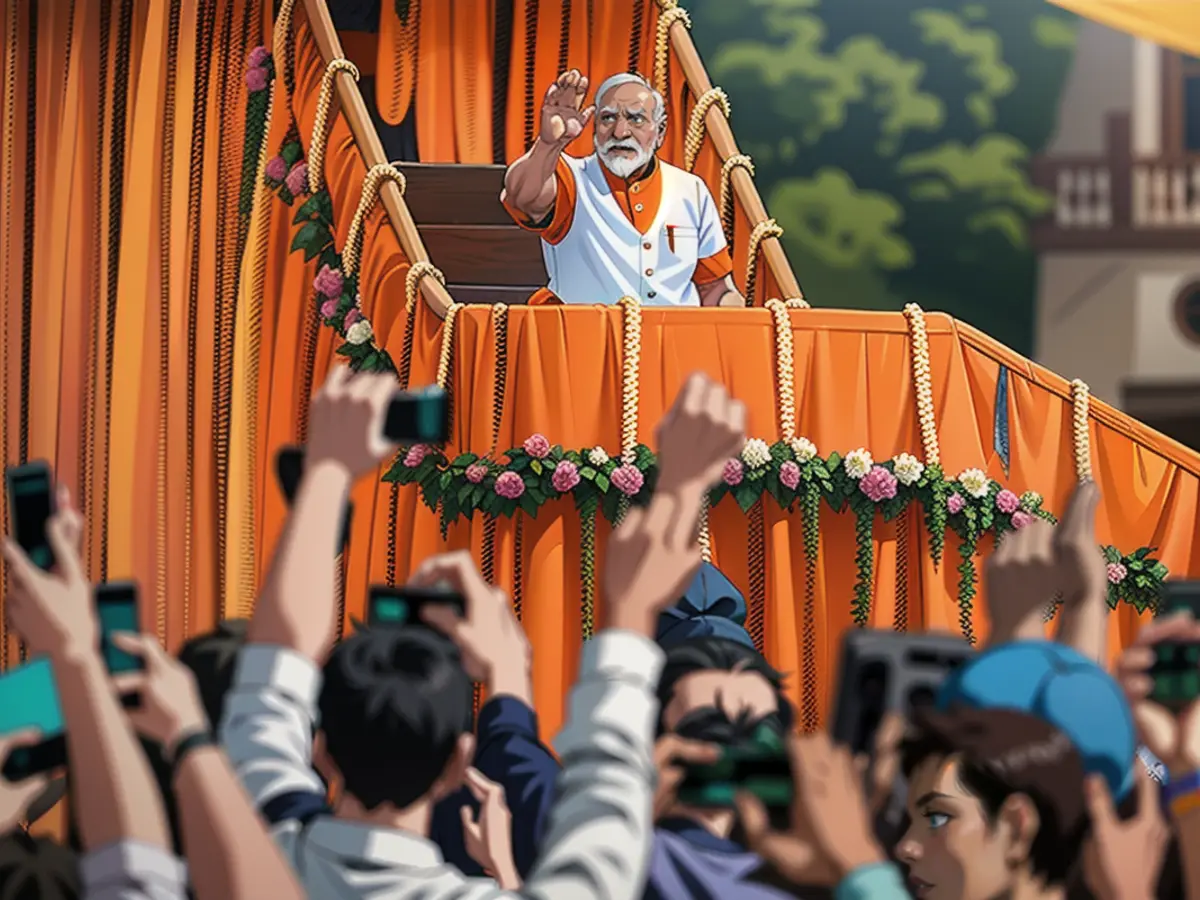Modi and India's ruling party employ Islamophobic language in their election campaign.
The amount of people voting in the recent election shows a minor decrease from five years prior. Despite this, the popular leader and probable victor has now taken on derogatory rhetoric, allegedly receiving little pushback from public or election authorities.
Members of the Hindu-nationalist Bharatiya Janata Party (BJP) have been associated with hateful language when referring to the nation's 200 million Muslims; but before this election, it was primarily their followers who voiced the offensive words. However, critics argue that public opinion has changed.
Milan Vaishnav, a scholar at the Carnegie Endowment for International Peace and the director of its South Asia Program, explained that the distinctive aspect of this topic is that these remarks are now being articulated by the Prime Minister himself, not just other BJP members.
Mistrust is widespread among Indian Muslims. Asim Ali, a political researcher and columnist, stated, “Modi and the BJP have been referencing this community, but it has moved past dog whistling. It's painting us as a danger to Hindus. It's coming directly from the prime minister. It's anti-Muslim and alarming.”
Modi and his Hindu Nationalist Party have always asserted they're non-discriminatory toward minority groups. Nonetheless, their recent statements are concerning.
Numerous speeches during this six-week election campaign have made disparaging remarks about the Muslim community. He labeled them "invaders" with "many children", without proof, accused the main opposition of trying to redistribute wealth to Muslims, and warned women about other party members taking their gold and giving it to Muslims. Additionally, he suggested the party wanted to appoint cricket team players based on religious affiliation.
The BJP did not comment when asked about their leaders' fiery language during this campaign. BJP national spokesperson Jaiveer Shergill said previously to CNN they are not prejudiced against Muslims and the community has benefited from Modi's leadership.
Irfan Nooruddin, a professor focusing on Indian politics at Georgetown University, tried to explain, "The rhetoric has become significantly more openly communal."
"These views are deeply held within the BJP, occasionally kept hidden to block negative publicity or societal pressure. With the media and society seemingly neutralized, the BJP doesn't anticipate any consequences and now reveals its true intentions."
Nooruddin continued, "The BJP's ultimate objective in this election is to achieve a substantial majority in the Indian Parliament, mainly concentrating on the Hindu vote and holding the opposition from making perceptible advances via economic appeals."
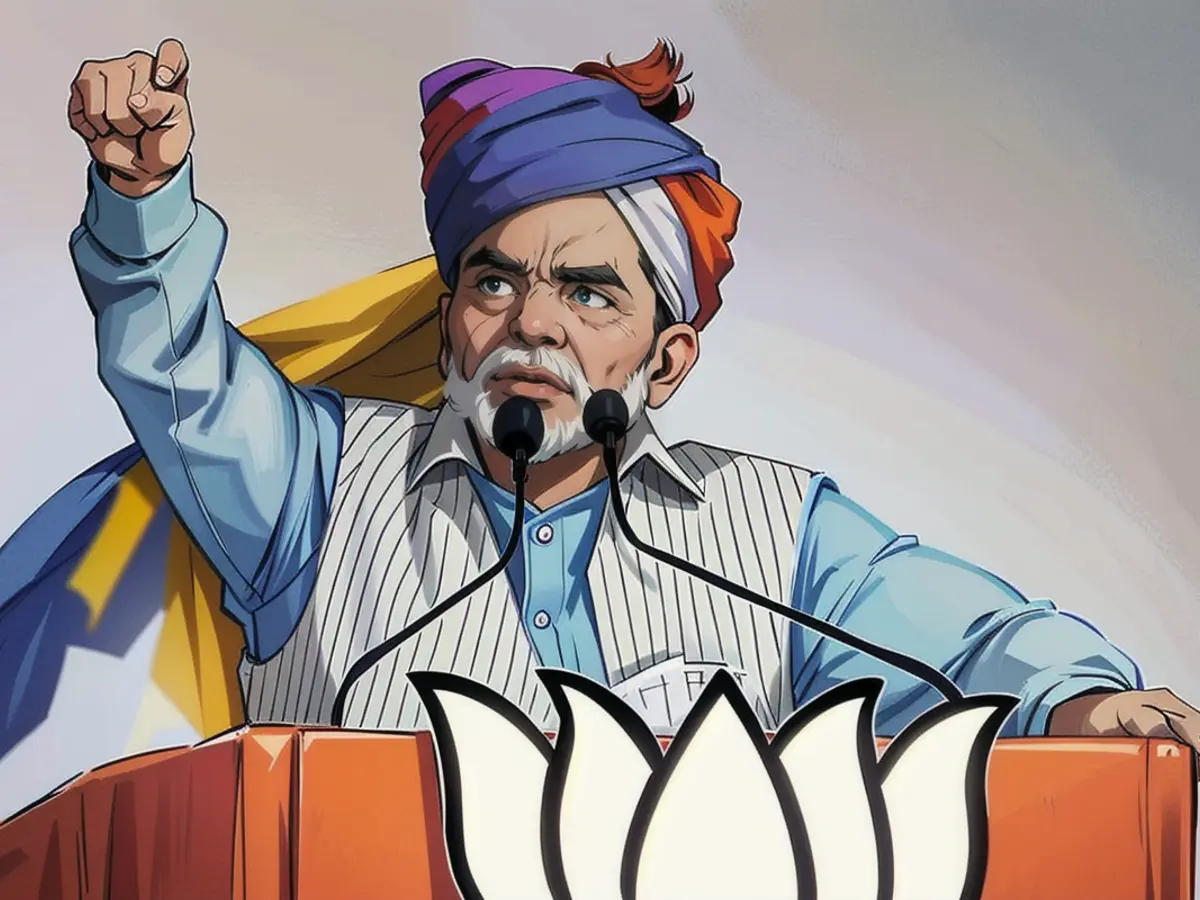
Some believe the increased anguish in Modi's speeches is due to the alleged decrease in turnout. The density of people voting is lower compared to 2019, causing uncertainty among BJP officials.
In April 2024, many entered the balloting stations. But voter turnout across the first six phases was slightly less than the record-setting 2019 results. This might be triggering some worry among the BJP's leaders.
Arvind Kejriwal, the prominent opposition leader and Delhi's Chief Minister who fiercely critiques Modi, was temporarily released from prison mid-April. He was captured and accused of corruption, yet his allies believe it was politically motivated. His release has inspired the divided opposition to unite against Modi and the BJP.
"The election is becoming more challenging," shared Ali, indicating that a more intense competition in crucial regions could contribute to the intensified discourse. "The BJP is the favorite but their aim is ambitous, and this rhetoric attracts its supporters."
Critics maintain that by escalating sectarianism, the prime minister is trying to boost his Hindu-nationalist image while distracting from economic shortcomings, like a skyrocketing wealth gap and severe unemployment among the youth.
Nooruddin, a scholar from Georgetown University, conveyed, "The BJP's track record regarding economic growth, job creation, and poverty alleviation is subpar. These fundamental issues have been central to election debates, and the opposition has actively highlighted them. So, I think the BJP's adoption of overt religious antagonism is their attempt to dispute the election on their preferred territory rather than on topics where they're vulnerable."
Independent Muslim journalist Alishan Jafri observed that everyday challenges brought by poverty and joblessness affect Muslims just as much as non-Muslims, highlighting the over one billion people relying on government-provided sustenance.
"Telling Hindus that Muslims will steal half of their religious land is likely to frighten them and widen the divide between the two communities. The fact that the mainstream media has not challenged this shows us two possibilities: either they're being bribed or they support it."
In spite of Modi’s international efforts to depict India as a dominant power on the global scene, his demonstrative statements about religion have failed to find disapproval among the Western world. In the previous year, Modi visited Australia and the U.S. for diplomatic reasons, promoting India as a vibrant country with a promising future.
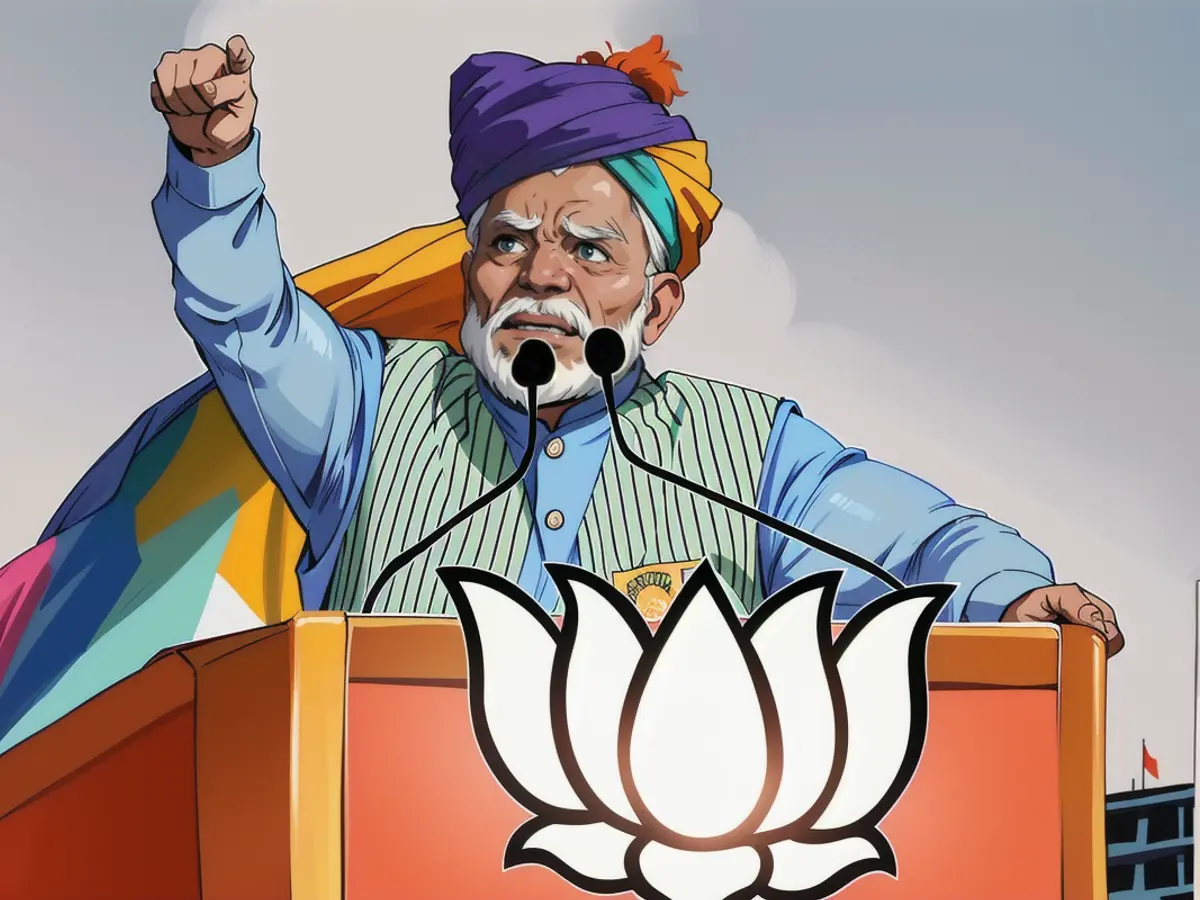
However, since India officially surpassed China in 2022 to become the world's most populous nation and overtook Britain in 2021 to become the fifth-largest economy, these seemingly nonchalant declarations may be perceived only as part of a broader strategy to counter China's growing influence.
At home, Modi's ability to maintain control has enabled him to make such remarks with minimal backlash from the general public.
"The Election Commission is quite ineffectual, and additional changes made to the process of appointing commissioners have further weakened its authority by pushing the Prime Minister's Office into a more prominent position," explained Nooruddin.
In reaction to Modi's speech on "infiltrators" dated April 21st, there has been uproar among Muslim leaders and opposition politicians, prompting demands for the election authorities to investigate. Nevertheless, the BJP has responded to the allegations by claiming that Modi was merely referring to undocumented migrants.
The Election Commission has requested a response from the BJP in response to these accusations; however, the opposition and critics argue that their reaction isn't satisfactory.
Surveys by independent bodies suggest that India's standing is deteriorating abroad, with some concern regarding the government's pro-Hindu ideals. According to Nooruddin, the unsettling statements employed during the campaign will ultimately damage India's international status by tarnishing its image.
"Despite the harshness of these comments, there's a likelihood that many people feel equally mistreated, threatened, and abandoned. They've lost faith in this administration and its sympathizers," the journalist Jafri remarked.
The atmosphere is tense with the general population experiencing emotional distress, anticipating nothing better from this government.
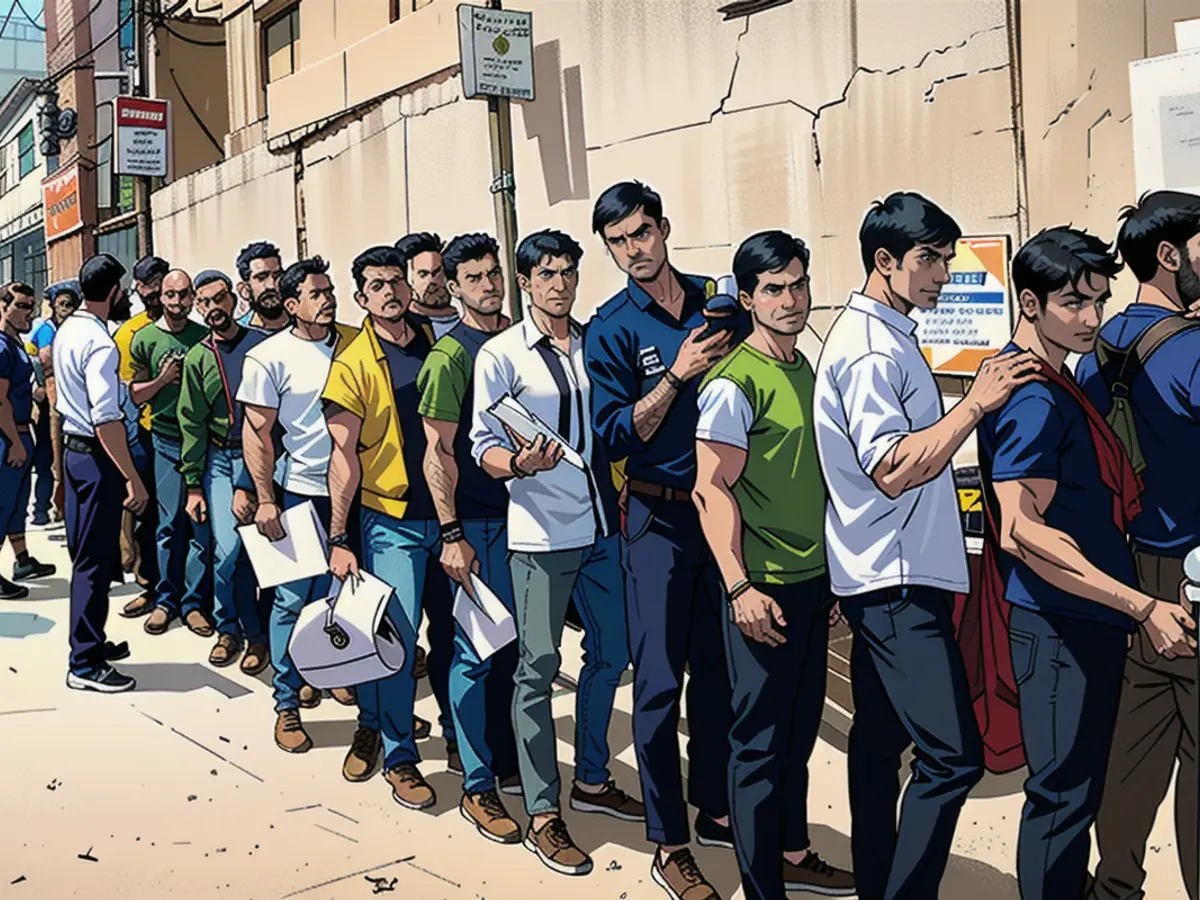
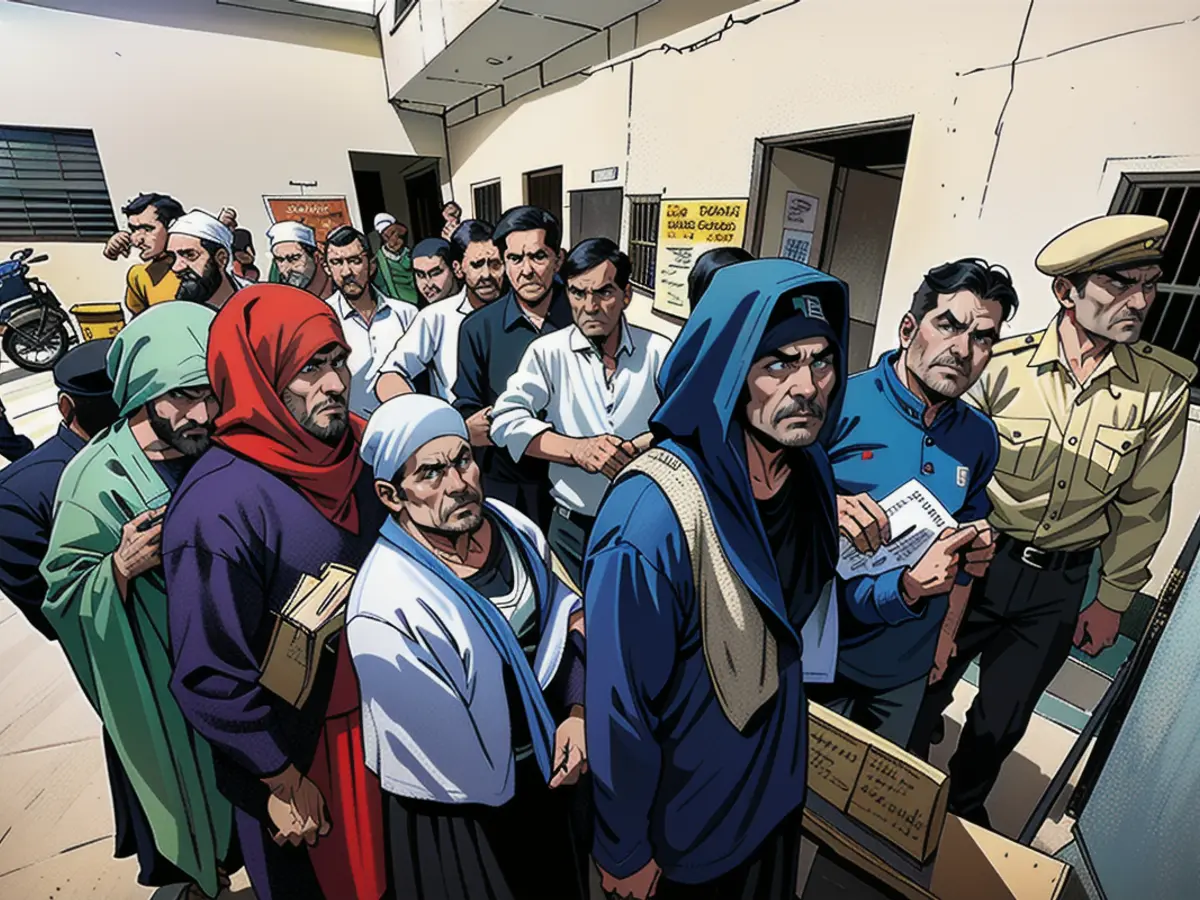
Read also:
- This will change in December
- Dikes withstand water masses so far - Scholz holds out the prospect of help
- Fireworks and parties ring in 2024 - turn of the year overshadowed by conflicts
- Attacks on ships in the Red Sea: shipping companies avoid important trade route
Despite the Prime Minister's assertions of non-discrimination towards minority groups, his recent derogatory comments towards Muslims in India, labeling them as "invaders" and "danger to Hindus", have raised concerns among critics and the Muslim community.
Furthermore, the world has been watching as India, now the most populous nation and fifth-largest economy, navigates these religious tensions, with some concern regarding the government's pro-Hindu ideals affecting its international reputation.
Source: edition.cnn.com
